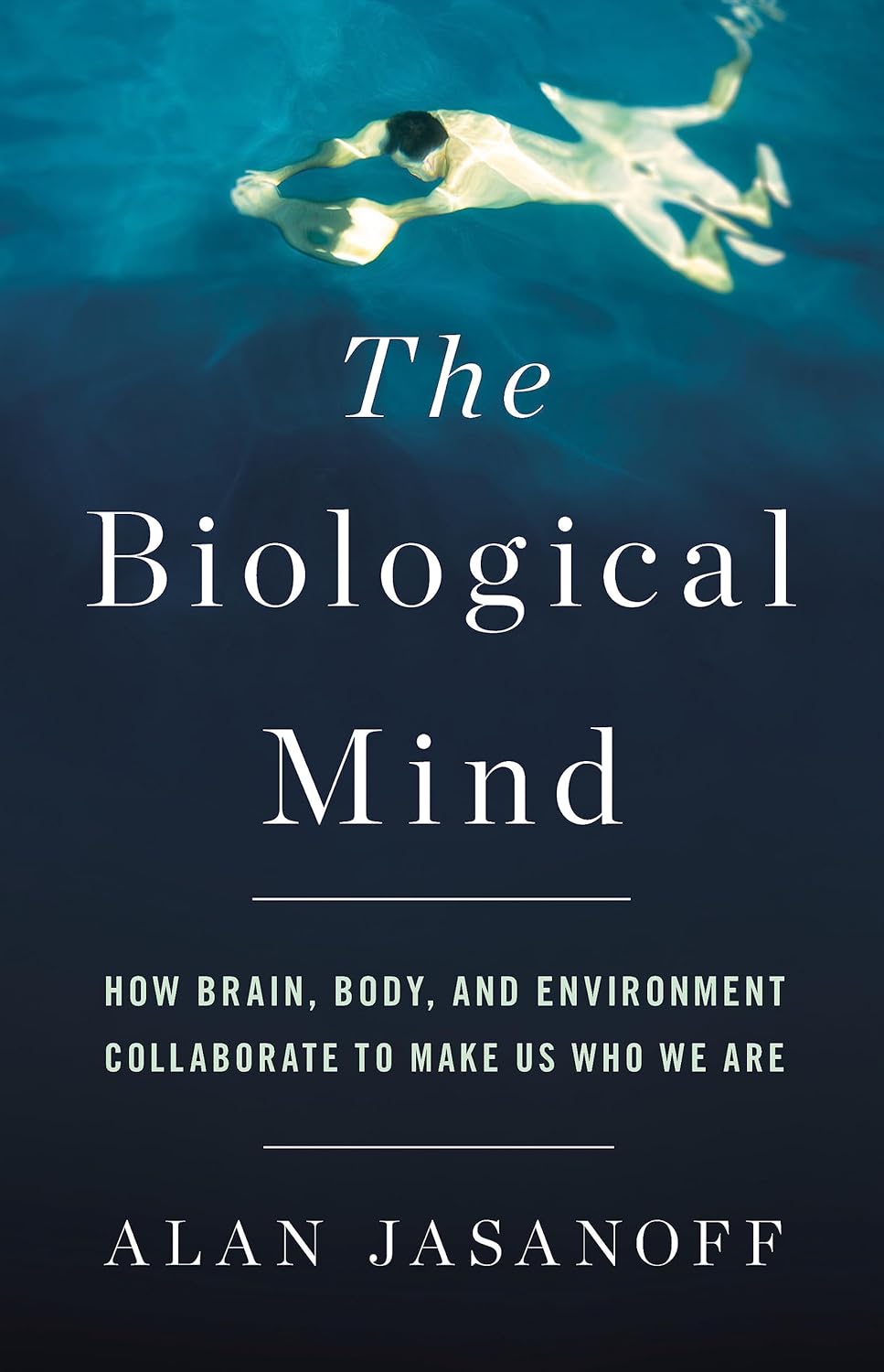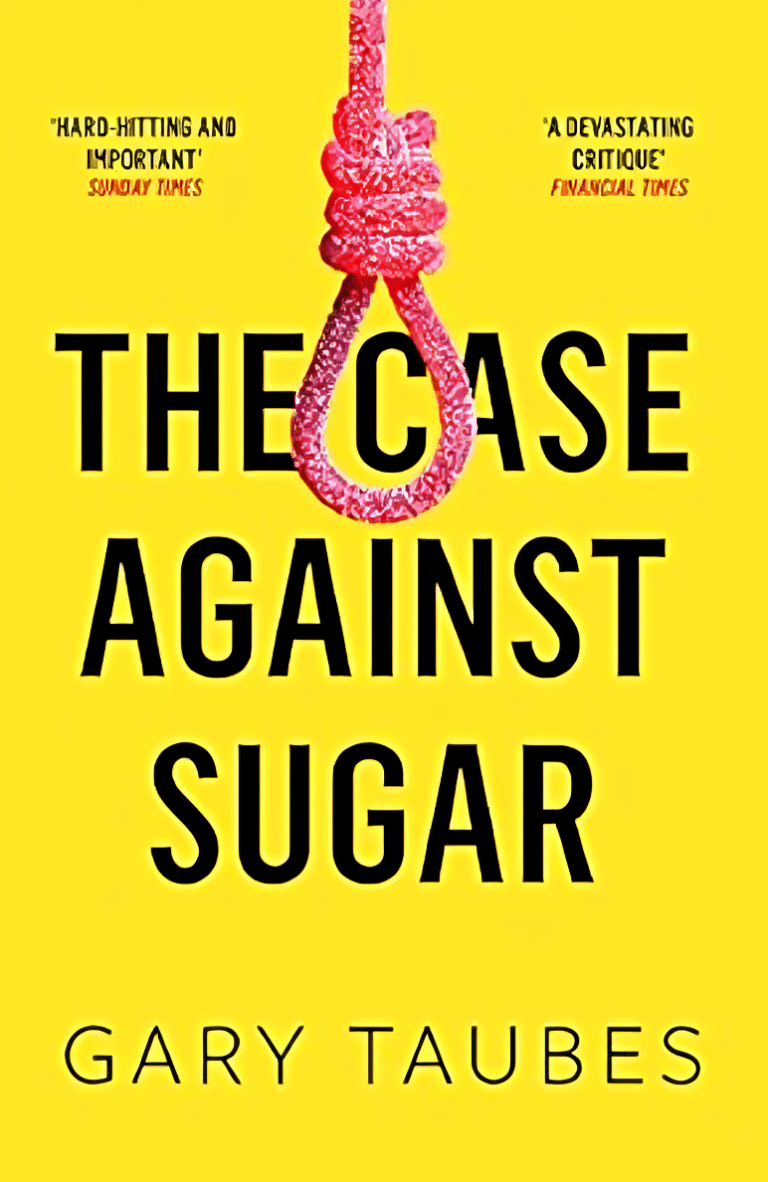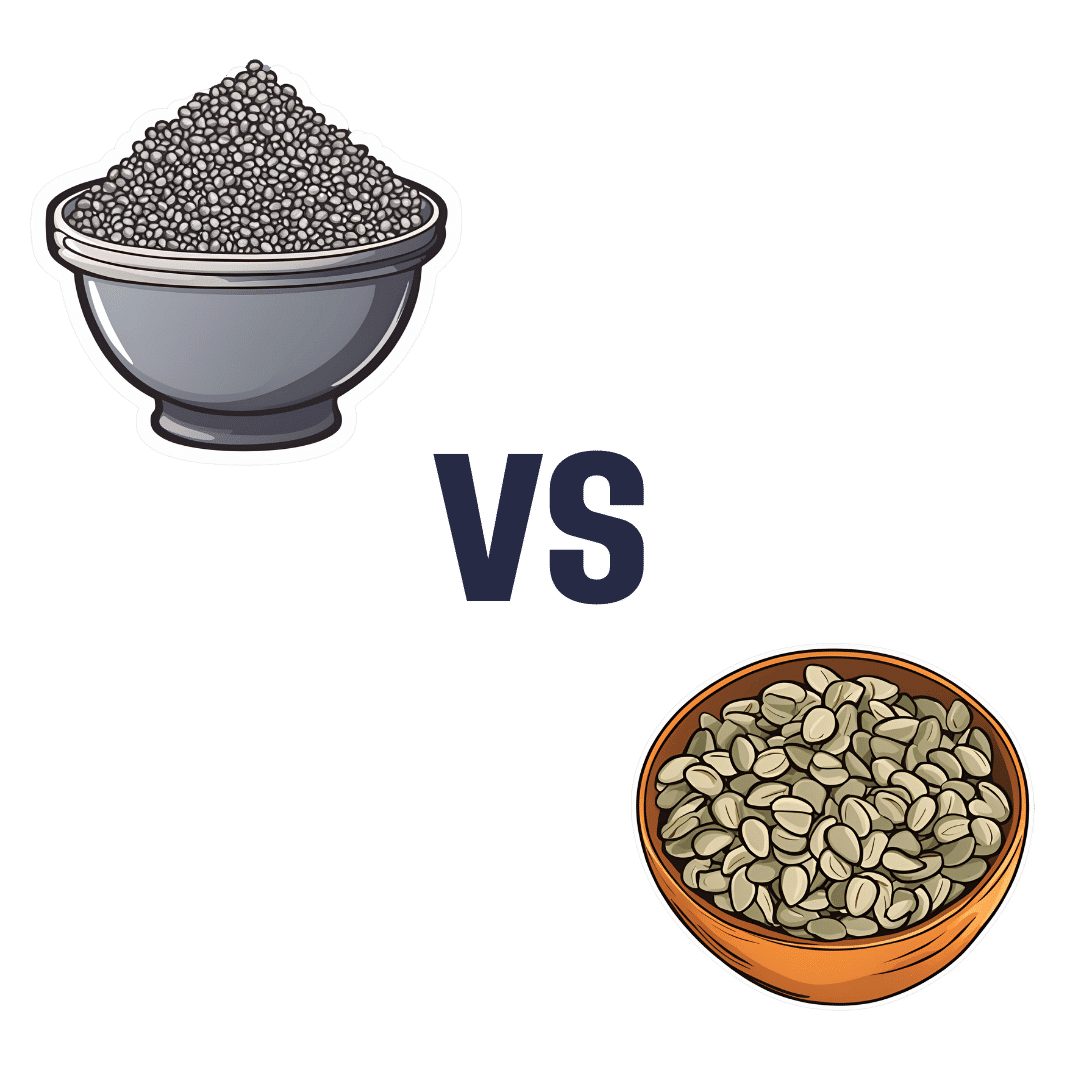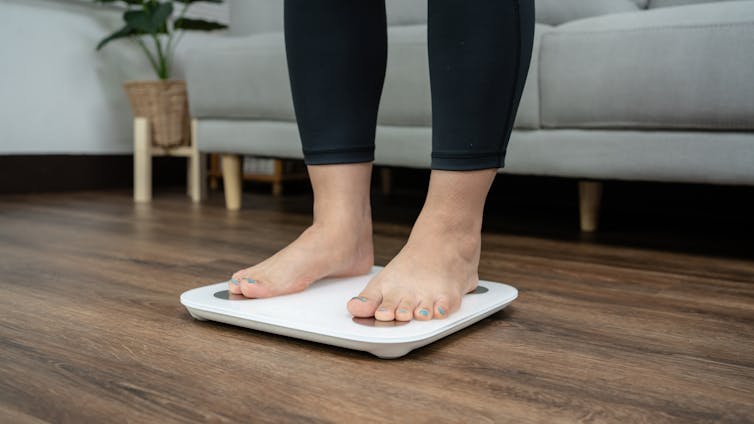
The Biological Mind – by Dr. Alan Jasanoff
10almonds is reader-supported. We may, at no cost to you, receive a portion of sales if you purchase a product through a link in this article.
How special is our brain? According to Dr. Alan Jasanoff, it’s not nearly as special as we think it is.
In this work, he outlines the case for how we have collectively overstated the brain’s importance. That it’s just another organ like a heart or a kidney, and that who we are is as much a matter of other factors, as what goes on in our brain.
In this reviewer’s opinion, he overcorrects a bit. The heart and kidneys are very simple organs, as organs go. The brain is not. And while everything from our gut microbiota to our environment to our hormones may indeed contribute to what is us, our brain is one thing that can’t just be swapped out.
Nevertheless, this very well-written book can teach us a lot about everything else that makes us us, including many biological factors that many people don’t know about or consider.
Towards the end of the book, he switches into futurist speculation, and his speculation can be summed up as “we cannot achieve anything worthwhile in the future”.
Bottom line: if you’ve an interest in such things as how transplanting glial cells can give a 30% cognitive enhancement, and how a brain transplant wouldn’t result in the same us in a different body, this is the book for you.
Click here to check out The Biological Mind, and learn about yours!
Don’t Forget…
Did you arrive here from our newsletter? Don’t forget to return to the email to continue learning!
Recommended
Learn to Age Gracefully
Join the 98k+ American women taking control of their health & aging with our 100% free (and fun!) daily emails:

Chia Seeds vs Pumpkin Seeds – Which is Healthier?
10almonds is reader-supported. We may, at no cost to you, receive a portion of sales if you purchase a product through a link in this article.
Our Verdict
When comparing chia seeds to pumpkin seeds, we picked the chia.
Why?
Both are great! But chia is best.
Note: we’re going to abbreviate them both to “chia” and “pumpkin”, respectively, but we’ll still be referring to the seeds throughout.
In terms of macros, pumpkin has a little more protein and notably higher carbs, whereas chia has nearly 2x the fiber, as well as more fat, and/but they are famously healthy fats. We’ll call this category a subjective win for chia, though you might disagree if you want to prioritize an extra 2g of protein per 100g (for pumpkin) over an extra 16g of fiber per 100g (for chia). Chia is also vastly preferable for omega-3.
When it comes to vitamins, pumpkin is marginally higher in vitamin A, while chia is a lot higher in vitamins B1, B2, B3, B9, C, and E. An easy win for chia.
In the category of minerals, for which pumpkin seeds are so famously a good source, chia has a lot more calcium, copper, iron, magnesium, manganese, phosphorus, and selenium. On the other hand, pumpkin has more potassium and zinc. Still, that’s a 7:2 win for chia.
Adding up the categories makes for a very compelling win for the humble chia seed.
Want to learn more?
You might like to read:
If You’re Not Taking Chia, You’re Missing Out: The Tiniest Seeds With The Most Value
Take care!
Share This Post

Beyond “Make Your Bed”—life lessons from experience
10almonds is reader-supported. We may, at no cost to you, receive a portion of sales if you purchase a product through a link in this article.
Beyond “Make Your Bed”—life lessons from experience

This is Admiral William H. McRaven, a former United States Navy four-star admiral who served as the ninth commander of the United States Special Operations Command.
So, for those of us whose day-to-day lives don’t involve coordinating military operations, what does he have to offer?
Quick note: 10almonds’ mission statement is “to make health and productivity crazy simple”.
We tend to focus on the health side of this, and in the category of productivity, it’s often what most benefits our mental health.
We’re writing less for career-driven technopreneurs in the 25–35 age bracket and more for people with a more holistic view of productivity and “a good life well-lived”.
So today’s main feature is more in that vein!
Start each day with an accomplishment
McRaven famously gave a speech (and wrote a book) that began with the advice, “make your bed”. The idea here doesn’t have to be literal (if you’ll pardon the pun). Indeed, if you’re partnered, then depending on schedules and habits, it could be you can’t (sensibly) make your bed first thing because your partner is still in it. But! What you can do is start the day with an accomplishment—however small. A short exercise routine is a great example!
Success in life requires teamwork
We’re none of us an island (except in the bathtub). The point is… Nobody can do everything alone. Self-sufficiency is an illusion. You can make your own coffee, but could you have made the coffee machine, or even the cup? How about, grown the coffee? Transported it? So don’t be afraid to reach out for (and acknowledge!) help from others. Teamwork really does make the dream work.
It’s what’s inside that counts
It’s a common trap to fall into, getting caught up the outside appearance of success, rather than what actually matters the most. We need to remember this when it comes to our own choices, as well as assessing what others might bring to the table!
A setback is only permanent if you let it be
No, a positive attitude won’t reverse a lifelong degenerative illness, for example. But what we can do, is take life as comes, and press on with the reality, rather than getting caught up in the “should be”.
Use failure to your advantage
Learn. That’s all. Learn, and improve.
Be daring in life
To borrow from another military force, the SAS has the motto “Who dares, wins”. Caution has it place, but if we’ve made reasonable preparations*, sometimes being bold is the best (or only!) way forward.
*Meanwhile the Parachute Regiment, from which come 80% of all SAS soldiers, has the motto “Utrinque paratus”, “prepared on all sides”.
Keep courage close
This is about not backing down when we know what’s right and we know what we need to do. Life can be scary! But if we don’t overcome our fears, they can become self-realizing.
Writer’s note: a good example of this is an advice I sometimes gave during my much more exciting (military) life of some decades ago, and it pertains to getting into a knife-fight (top advice for civilians: don’t).
But, if you’re in one, you need to not be afraid of getting cut.
Because if you’re not afraid of getting cut, you will probably get cut.
But if you are afraid of getting cut, you will definitely get cut.
Hopefully your life doesn’t involve knives outside of the kitchen (mine doesn’t, these days, and I like it), but the lesson applies to other things too.
Sometimes the only way out is through.
Be your best at your worst
Sometimes life is really, really hard. But if we allow those moments to drive us forwards, they’re also a place we can find more strength than we ever knew we had.
Keep on swimming
It’s said that the majority in life is about showing up—and often it is. But you have to keep showing up, day after day. So make what you’re doing sustainable for you, and keep on keeping on.
Share This Post

Take These To Lower Cholesterol! (Statin Alternatives)
10almonds is reader-supported. We may, at no cost to you, receive a portion of sales if you purchase a product through a link in this article.
Dr. Ada Ozoh, a diabetes specialist, took an interest in this upon noting the many-headed beast that is metabolic syndrome means that neither diabetes nor cardiovascular disease exist in a vacuum, and there are some things that can help a lot against both. Here she shares some of her top recommendations:
Statin-free options
Dr. Ozoh recommends:
- Bergamot: lowers LDL (“bad” cholesterol) by about 30% and slightly increases HDL (“good” cholesterol), at 500–1000mg/day, seeing results in 1–6 months
- Berberine: prevents fat absorption and helps burn stored fat, as well as reducing blood sugar levels and blood pressure, at 1,500mg/day
- Silymarin: protects the liver, and lowers cholesterol in type 2 diabetes, at 280–420mg/day
- Phytosterols: lower cholesterol by about 10%; found naturally in many plants, but it takes supplementation to read the needed (for this purpose) dosage of 2g/day
- Red yeast rice: this is white rice fermented with yeast, and it lowers LDL cholesterol by about 25%, seeing results in around 3 months
For more information on all of the above (including more details on the biochemistry, as well as potential issues to be aware of), enjoy:
Click Here If The Embedded Video Doesn’t Load Automatically!
Want to learn more?
You might also like to read:
- Statins: His & Hers? Very Different For Men & Women
- Berberine For Metabolic Health
- Milk Thistle For The Brain, Bones, & More ← this is about silymarin, which is extracted from Silybum marianum, the milk thistle plant
Take care!
Share This Post
Related Posts

How To Avoid UTIs
10almonds is reader-supported. We may, at no cost to you, receive a portion of sales if you purchase a product through a link in this article.
Psst… A Word To The Wise
Urinary Tract Infections (UTIs) can strike at any age, but they get a lot more common as we get older:
- About 10% of women over 65 have had one
- About 30% of women over 85 have had one
Source: Urinary tract infection in older adults
Note: those figures are almost certainly very underreported, so the real figures are doubtlessly higher. However, we print them here as they’re still indicative of a disproportionate increase in risk over time.
What about men?
Men do get UTIs too, but at a much lower rate. The difference in average urethra length means that women are typically 30x more likely to get a UTI.
However! If a man does get one, then assuming the average longer urethra, it will likely take much more treatment to fix:
Case study: 26-Year-Old Man With Recurrent Urinary Tract Infections
Risk factors you might want to know about
While you may not be able to do much about your age or the length of your urethra, there are some risk factors that can be more useful to know:
Catheterization
You might logically think that having a catheter would be the equivalent of having a really long urethra, thus keeping you safe, but unfortunately, the opposite is true:
Read more: Review of Catheter-Associated Urinary Tract Infections
Untreated menopause
Low estrogen levels can cause vaginal tissue to dry, making it easier for pathogens to grow.
For more information on menopausal HRT, see:
What You Should Have Been Told About Menopause Beforehand
Sexual activity
Most kinds of sexual activity carry a risk of bringing germs very close to the urethra. Without wishing to be too indelicate: anything that’s going there should be clean, so it’s a case for washing your hands/partner(s)/toys etc.
For the latter, beyond soap and water, you might also consider investing in a UV sanitizer box ← This example has a 9” capacity; if you shop around though, be sure to check the size is sufficient!
Kidney stones and other kidney diseases
Anything that impedes the flow of urine can raise the risk of a UTI.
See also: Keeping Your Kidneys Healthy (Especially After 60)
Diabetes
How much you can control this one will obviously depend on which type of diabetes you have, but diabetes of any type is an immunocompromizing condition. If you can, managing it as well as possible will help many aspects of your health, including this one.
More on that:
How To Prevent And Reverse Type 2 Diabetes
Note: In the case of Type 1 Diabetes, the above advice will (alas) not help you to prevent or reverse it. However, reducing/avoiding insulin resistance is even more important in cases of T1D (because if your exogenous insulin stops working, you die), so the advice is good all the same.
How do I know if I have a UTI?
Routine screening isn’t really a thing, since the symptoms are usually quite self-evident. If it hurts/burns when you pee, the most likely reason is a UTI.
Get it checked out; the test is a (non-invasive) urinalysis test. In other words, you’ll give a urine sample and they’ll test that.
Anything else I can do to avoid it?
Yes! We wrote previously about the benefits of cranberry supplementation, which was found even to rival antibiotics:
❝…recommend cranberry ingestion to decrease the incidence of urinary tract infections, particularly in individuals with recurrent urinary tract infections. This would also reduce the [need for] administration of antibiotics❞
Read more: Health Benefits Of Cranberries
Take care!
Don’t Forget…
Did you arrive here from our newsletter? Don’t forget to return to the email to continue learning!
Learn to Age Gracefully
Join the 98k+ American women taking control of their health & aging with our 100% free (and fun!) daily emails:

Tech Bliss – by Clo S., MSc.
10almonds is reader-supported. We may, at no cost to you, receive a portion of sales if you purchase a product through a link in this article.
The popular idea of a “digital detox” is simple enough, “just unplug!”, they say.
But here in the real world, not only is that often not practical for many of us, it may not always even be entirely desirable. The Internet (and our devices with all their bells and whistles) can be a source of education, joy, and connection!
So, how to find out what’s good for us and what’s not, in our daily digital practices? Clo. S. has answers… Or rather, experiments for us to do and find out for ourselves.
These experiments range from the purely practical “try this to streamline your experience” to the more personal “how does this thing make you feel?”. A lot of the experiments will be performed via your digital devices—some, without! Others are about online interpersonal dynamics, be they one-on-one or navigating a world in which it seems everyone is out to get us, our outrage, and/or our money. Still yet others are about optimizing what you do get from the parts of your digital experience that are enriching for you.
As the title suggests, there are 30 experiments, and it’s not a stretch to do them one per day for a month. But, as the author notes, it’s by no means necessary to do them like that; it’s a workbook and reference guide, not a to-do list!
(On the topic of it being a reference guide…There’s also an extensive tools directory towards the end!)
In short: this is a great book for optimizing your online experience—whatever that might mean for you personally; you can decide for yourself along the way!
Click here to get a copy of Tech Bliss: 30 Experiments For Your Digital Wellness today!
Don’t Forget…
Did you arrive here from our newsletter? Don’t forget to return to the email to continue learning!
Learn to Age Gracefully
Join the 98k+ American women taking control of their health & aging with our 100% free (and fun!) daily emails:

3 signs your diet is causing too much muscle loss – and what to do about it
10almonds is reader-supported. We may, at no cost to you, receive a portion of sales if you purchase a product through a link in this article.
When trying to lose weight, it’s natural to want to see quick results. So when the number on the scales drops rapidly, it seems like we’re on the right track.
But as with many things related to weight loss, there’s a flip side: rapid weight loss can result in a significant loss of muscle mass, as well as fat.
So how you can tell if you’re losing too much muscle and what can you do to prevent it?

EvMedvedeva/Shutterstock Why does muscle mass matter?
Muscle is an important factor in determining our metabolic rate: how much energy we burn at rest. This is determined by how much muscle and fat we have. Muscle is more metabolically active than fat, meaning it burns more calories.
When we diet to lose weight, we create a calorie deficit, where our bodies don’t get enough energy from the food we eat to meet our energy needs. Our bodies start breaking down our fat and muscle tissue for fuel.
A decrease in calorie-burning muscle mass slows our metabolism. This quickly slows the rate at which we lose weight and impacts our ability to maintain our weight long term.
How to tell you’re losing too much muscle
Unfortunately, measuring changes in muscle mass is not easy.
The most accurate tool is an enhanced form of X-ray called a dual-energy X-ray absorptiometry (DXA) scan. The scan is primarily used in medicine and research to capture data on weight, body fat, muscle mass and bone density.
But while DEXA is becoming more readily available at weight-loss clinics and gyms, it’s not cheap.
There are also many “smart” scales available for at home use that promise to provide an accurate reading of muscle mass percentage.

Some scales promise to tell us our muscle mass. Lee Charlie/Shutterstock However, the accuracy of these scales is questionable. Researchers found the scales tested massively over- or under-estimated fat and muscle mass.
Fortunately, there are three free but scientifically backed signs you may be losing too much muscle mass when you’re dieting.
1. You’re losing much more weight than expected each week
Losing a lot of weight rapidly is one of the early signs that your diet is too extreme and you’re losing too much muscle.
Rapid weight loss (of more than 1 kilogram per week) results in greater muscle mass loss than slow weight loss.
Slow weight loss better preserves muscle mass and often has the added benefit of greater fat mass loss.
One study compared people in the obese weight category who followed either a very low-calorie diet (500 calories per day) for five weeks or a low-calorie diet (1,250 calories per day) for 12 weeks. While both groups lost similar amounts of weight, participants following the very low-calorie diet (500 calories per day) for five weeks lost significantly more muscle mass.
2. You’re feeling tired and things feel more difficult
It sounds obvious, but feeling tired, sluggish and finding it hard to complete physical activities, such as working out or doing jobs around the house, is another strong signal you’re losing muscle.
Research shows a decrease in muscle mass may negatively impact your body’s physical performance.
3. You’re feeling moody
Mood swings and feeling anxious, stressed or depressed may also be signs you’re losing muscle mass.
Research on muscle loss due to ageing suggests low levels of muscle mass can negatively impact mental health and mood. This seems to stem from the relationship between low muscle mass and proteins called neurotrophins, which help regulate mood and feelings of wellbeing.
So how you can do to maintain muscle during weight loss?
Fortunately, there are also three actions you can take to maintain muscle mass when you’re following a calorie-restricted diet to lose weight.
1. Incorporate strength training into your exercise plan
While a broad exercise program is important to support overall weight loss, strength-building exercises are a surefire way to help prevent the loss of muscle mass. A meta-analysis of studies of older people with obesity found resistance training was able to prevent almost 100% of muscle loss from calorie restriction.
Relying on diet alone to lose weight will reduce muscle along with body fat, slowing your metabolism. So it’s essential to make sure you’ve incorporated sufficient and appropriate exercise into your weight-loss plan to hold onto your muscle mass stores.

Strength-building exercises help you retain muscle. BearFotos/Shutterstock But you don’t need to hit the gym. Exercises using body weight – such as push-ups, pull-ups, planks and air squats – are just as effective as lifting weights and using strength-building equipment.
Encouragingly, moderate-volume resistance training (three sets of ten repetitions for eight exercises) can be as effective as high-volume training (five sets of ten repetitions for eight exercises) for maintaining muscle when you’re following a calorie-restricted diet.
2. Eat more protein
Foods high in protein play an essential role in building and maintaining muscle mass, but research also shows these foods help prevent muscle loss when you’re following a calorie-restricted diet.
But this doesn’t mean just eating foods with protein. Meals need to be balanced and include a source of protein, wholegrain carb and healthy fat to meet our dietary needs. For example, eggs on wholegrain toast with avocado.
3. Slow your weight loss plan down
When we change our diet to lose weight, we take our body out of its comfort zone and trigger its survival response. It then counteracts weight loss, triggering several physiological responses to defend our body weight and “survive” starvation.
Our body’s survival mechanisms want us to regain lost weight to ensure we survive the next period of famine (dieting). Research shows that more than half of the weight lost by participants is regained within two years, and more than 80% of lost weight is regained within five years.
However, a slow and steady, stepped approach to weight loss, prevents our bodies from activating defence mechanisms to defend our weight when we try to lose weight.
Ultimately, losing weight long-term comes down to making gradual changes to your lifestyle to ensure you form habits that last a lifetime.
At the Boden Group, Charles Perkins Centre, we are studying the science of obesity and running clinical trials for weight loss. You can register here to express your interest.
Nick Fuller, Charles Perkins Centre Research Program Leader, University of Sydney
This article is republished from The Conversation under a Creative Commons license. Read the original article.
Don’t Forget…
Did you arrive here from our newsletter? Don’t forget to return to the email to continue learning!
Learn to Age Gracefully
Join the 98k+ American women taking control of their health & aging with our 100% free (and fun!) daily emails:











